written by Shawn Barbour
The recent financial crisis and corporate scandals have generated more focus on corporate governance, which affects us all in different ways including our investment portfolios, employment, charitable contributions, and any other organization governed by a board where we have a vested interest. Therefore, it is essential that boards continuously strive to be more effective.
A properly structured and functioning audit committee can provide assurance that a board of directors is effectively overseeing and providing direction to a company in the best interest of the stakeholders. The control environment, generally known for establishing the tone at the top, is a primary component of internal control. Embedded in this component is the oversight role of the board of directors. To effectively fulfill its oversight role, the board should divide itself into separate functioning committees that focus specifically on areas that will protect stakeholders’ interests. There are several points a board should consider to improve the effectiveness of the committee.
The Charter
First, an audit committee charter should be created. In addition to defining the committee’s roles and responsibilities, the charter will provide guidance about how the committee should function, management of relationships with those assisting the committee with oversight, and authority to engage independent counsel and other advisors when needed. The charter should not be so comprehensive that it restricts the committee’s activities and effectiveness, but should be detailed enough to provide expectations for performance.
Committee Members
In addition to providing direction to the committee, the charter should also address who will be on the audit committee. Ideally, members of the committee should be independent of management; however, smaller companies struggle with meeting this condition. In order to fulfill the responsibilities of overseeing the adequacy of risk management, internal controls, and the financial reporting process, committee members should possess a reasonable balance of knowledge and skills compatible with their duties. Therefore, the board needs to evaluate the ability to remain independent while maintaining a committee competent enough to fulfill its role.
Reporting Lines
A committee’s effectiveness is further enhanced through reporting lines. Who reports to the committee and how often should be outlined in the charter. Internal audit functions should have direct access to the committee without the presence of management.
Question the Provider
The committee should discuss the engagement with those performing the procedures. As an example the committee should be curious to know if there were any issues in performing the engagement and if so how were they resolved, what are the provider’s quality control practices, and how are findings discovered during the engagement addressed by management?
Evaluate Effectiveness
Finally, the effectiveness of the audit committee should be evaluated at least annually to determine if the committee as a whole and its individual members are meeting expectations. This can be in the form of a self-evaluation, internal evaluation, or outsourced.
If you would like more information about how to improve or evaluate corporate governance give us a call at 417-881-0145.

